Welcome travelers. Earlier in July, we were able to look at the work of talented author Beth Connor, with Micah and the Candles of Time, the first book in her Isdralan Chronicles. Today, we’re going to take a bit of a deeper dive into the world of Isdralan, and we’ll also be taking a closer look at Connor, who is a modern-day renaissance woman. She does it all, and pulls back the curtain just a bit, to see how she manages to accomplish such impressive feats. Read on to learn more about this skilled creator!
Tellest: Greetings Beth! First off, let me say thank you for taking the time to share a bit about yourself and the worlds you are building. You’ve got a lot on your plate, as you run a bit of a gauntlet with all of your creative endeavors. I’m certainly excited to get to learn more about what you do, and probably more interested than anything to see how you figured out a way to balance everything!
Beth Connor: I won’t deny it, I get carried away from time to time, but I wouldn’t have it any other way. I am the kind of person who’s always brimming with ideas. Spot something interesting? I want to put my stamp on it. I think my brain’s a bit like the inside of a pinball machine – everywhere at once!
To keep my ideas from going all over the place, I’ve got lists – lots of ’em. They are a secret weapon against my wild, neurodivergent thinking. It’s like that dog, Dug, from the movie “Up,” who’s always distracted by “SQUIRREL!” except, for me, it’s not a squirrel, it’s a new project!
I’ve put a rule in place: stick to no more than five projects at a time. This way, I can really try to give each one the attention it deserves. Once I’ve got one completed, I take another look at my lists, shuffle things around a bit, and pick the next one.
Right now, I’m juggling “Prodigy of Flame,”(Isdralan Novel) “The Golden Gull,”(Isdralan Anthology) my day job (YAWN), running a little Etsy store, and teaching a tap dance class. As soon as I wrap up the novels, I’m planning to get my podcast up and running again.
T: Just about all of my interviews start with some permutation of this question: what brought about your interest in the fantasy genre? Did you have any favorite authors growing up, or was there someone in your family or community that sent you adventuring to far-off places in imagination-land?
BC: I could easily fill another book with all the tales I fell in love with as a kid, but let’s concentrate on the ones that truly made a difference. My dad, always reading and teaching, didn’t simply stick with typical picture books. Instead, he introduced us to the world of Tolkien. Another one that was frequently on the reading list was Richard Adams’ Watership Down.
Once I hit school age and started reading on my own, I was totally into the Narnia stories by C.S. Lewis, and as I grew older, I found myself drawn to Arthurian legend, specifically Marion Zimmer Bradley’s “Mists of Avalon”. I was really taken with the way she reshaped the Arthur myths from the woman’s perspective.
Lastly, I can’t forget the first gift from my husband: the available books from Robert Jordan’s Wheel of Time series at that time. I’ll be honest, I often felt more at home in a fantasy world, and that hasn’t changed one bit!
T: I didn’t want to take us away from the tried-and-true format of the interview, but I do want to circle back to one of your earlier replies. You mentioned that you don’t typically allow yourself to step outside of a quintet of projects. What do you do in the situation that something comes up that you are just too excited to ignore? Do you demote one of your other projects? Have you yet to come up against such a problem?
BC: This happens all the time! My task list operates more as an organizational tool to direct my focus and manage my priorities. It’s something I have to regularly reassess and reprioritize. My commitments, such as the Crossroads Cantina project, can be put on hold while I delve into my writing endeavors, only to be picked up again once those are accomplished. My list far exceeds five items; these five are merely the focal points where my current energy is directed. Above all, this method serves as a burnout prevention strategy for me. It enables me to declutter my mind. If I’m attempting to edit “Prodigy of Flame,” and my mind is preoccupied with when I’ll complete the next Crossroads episode or contemplating a brand-new storyline, I end up accomplishing nothing. It’s a necessary tool for me to maintain focus and productivity.
T: What is it about the number five that helps you accomplish that task? Is there some magic to it, or is it just a situation that you experimented with enough to find that five is a nice number for your focus?
BC: At the start, there wasn’t anything important about the number five. At that moment, it just seemed like a feasible and manageable choice. I thought about seven, but it was too ambitious. Three was too easy. Over time, this preference for ‘five’ has transformed into something of a ritual or habit. Now, I find myself instinctively reverting to it, almost like it holds its own magic. It’s fascinating, and a bit amusing, how we can turn the most ordinary choices into our own little eccentricities.
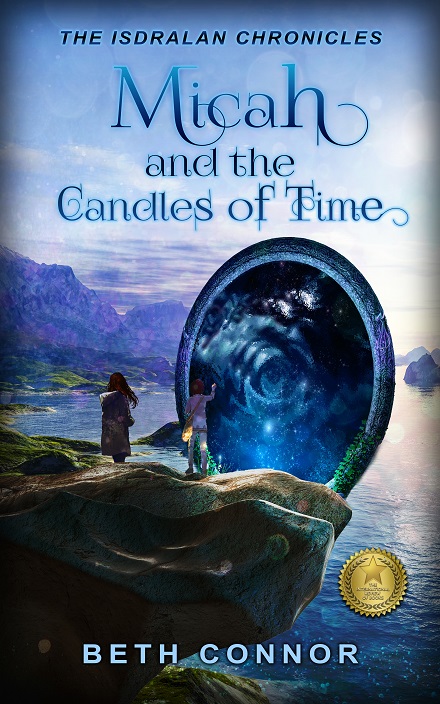
T: Exploring other people’s worlds can be a wonderful experience, but there’s probably nothing quite so incredible as building a world of your own to play in. Your book, Micah and the Candles of Time, takes place in The Isdralan Chronicles, and Isdralan happens to be the name of the wonderful world you’ve crafted for your stories. What sets Isdralan aside from other fantasy realms, and how would you say it feels like home to you?
BC: Isdralan, for me, is like a second home. It’s a world I’ve built from all the things that are close to my heart. My love for mythology and pride in my Irish roots sparked it all off. I was so hooked on the stories of the Tuatha Dé Danann and Tír na nÓg that I started dreaming up my own mythical realm, which grew and evolved into Isdralan.
Then, I began toying with the idea of the “space between spaces,” and dug into Hugh Everett’s Many Worlds theory. That got me thinking – can I bring fantasy and science together? I’ve always been more of a fantasy person, but, Micah, eventually develops a scientific approach as he journeys through the world(s). I haven’t penned all of his stories and mysteries down yet, but it’s a concept I’m really excited about.
I also wanted to create a world that could grow and expand over time. Isdralan is kind of like a hub, connecting different worlds, ours included. My hope is to one day invite other authors to contribute their stories to this universe, using Isdralan as a common link.
I see connections between Isdralan and many mythical places, like Asgard, Elysium, and Tir na Nog. We (as the human race) create myths to explain things we can’t understand. Maybe one day, we’ll unravel all of these mysteries, but until then, I’m happy living in a world of fantasy. It’s a place where I feel at home.
T: Your journey into Isdralan in your latest book follows a character from our world. They allow us to see everything firsthand through their eyes, and in a way, they’re sort of like the tour guide for the adventure. Is that the style you would prefer for your stories going forward, or will we see some tales that focus completely on characters who were born and raised in Isdralan, without outside influences?
BC: There’s no rigid style structure or rule in place as I move forward. The upcoming book in the Isdralan Chronicles introduces a character originating from her own universe, not ours, and eventually journeying to Isdralan. While I strive to make each narrative independent, there’s an inherent interconnectedness that threads them together. For instance, Micah appears in the next book in a new role; however, understanding his backstory is not a prerequisite for understanding the story. Some may wholly occur within Isdralan, while others might feature it briefly or establish a minor connection. Ultimately, Isdralan is a world I aspire to make so open and inviting that anyone feels they can contribute their own narratives novels and such.
T: You caught my attention with your preview for the upcoming book. The character from that book, who you mentioned is from her own universe—I’m supposing that means she’s not from our universe. So you’re really jumping into the idea of Isdralan being a great hub of multiple realms!
BC: Yes, indeed! My vision for Isdralan is to expand its horizons, encompassing a multiverse of worlds. In fact, I have an upcoming anthology that delves into some of these diverse realms. By involving additional authors, my aim is to infuse more voices into it. While I might be jumping the gun, my ultimate dream is to see our readers contributing their own stories and art to the world.
As my writing journey continues, I’m realizing the complexity of managing so much information in my head. Hence, I’m currently working on adding details about Isdralan onto a World Anvil page. I have envisioned this as a form of ‘wiki’, and I hope this platform evolves my thoughts into something much more extensive and interactive!
T: Just as important as building out a tapestry that you can set your stories in, crafting a character that audiences resonate with can be a daunting task. How did you come to develop Micah, and what makes him such a relatable protagonist to lead readers into your world?
BC: The saying goes, “write what you know.” But when you’re penning a fantasy world, the “knowing” often comes from imagination and a love for games. I’ve always been drawn to roleplaying and tabletop games like Dungeons and Dragons and Pathfinder. I’ve even dabbled in creating some unique ones myself.
Back in the day, my husband and I were part of a D&D group. Our kids would tag along, amusing themselves while we dove into our gaming sessions. As they grew older, these sessions turned into family game nights, with our own little adventures. In fact, some characters from my world, like Micah, originated from these games. Born from one of my son’s characters, I wove in his personality and that of the original roleplay character, eventually creating a unique character in my writing. Lady Durya followed a similar path, evolving from one of my daughter’s characters.
There’s a running joke that my characters are my children, and in this case, it’s pretty literal. I feel their joys and sorrows, I laugh and cry with them. They’re extensions of my family, forever etched in the realm of Isdralan.
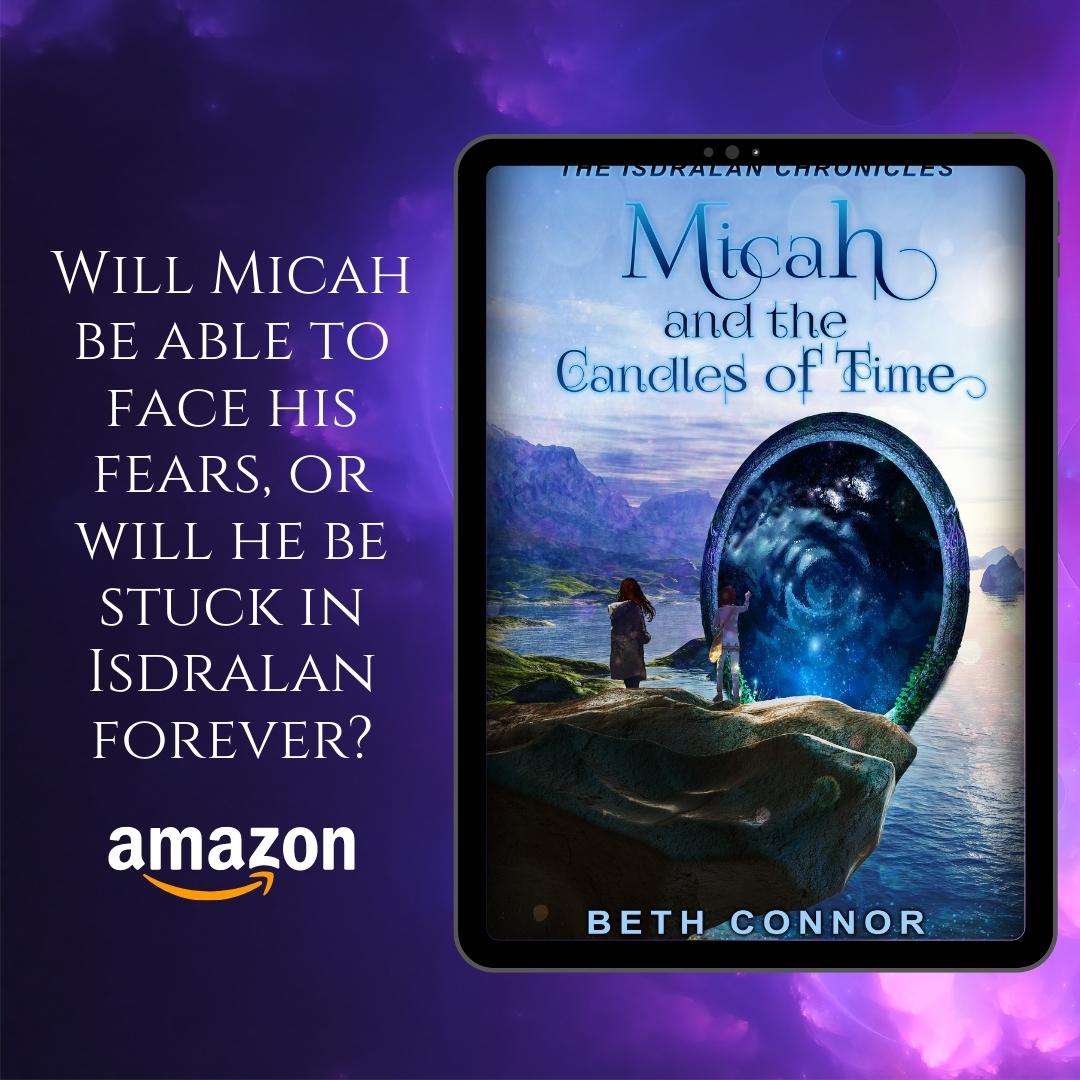
T: In certain ways, it must hit extra hard when something bad happens to one of your closer characters. You could almost see a reflection of worry about real-life counterparts, or the inspirations for the characters. How do you keep them at arm’s length enough to allow them to experience life in ways that don’t hurt you—or at least, not to debilitating lengths?
BC: While the characters may originate or draw inspiration from individuals in my life, they quickly evolve into unique beings. Although there’s always a degree of emotional attachment and empathy towards them, they exist as separate entities, much like the people around us. Marcus Aurelius once stated, “You have power over your mind—not outside events. Realize this, and you will find strength.” I strive to apply this principle to both my writing and life. If we, the people we care about, and our characters never ventured to confront external events, life would indeed be dull. I attempt to let them “live their lives,” aware that ultimately, their actions bear no influence on my inner core. This release of control, I believe, makes my writing more interesting.
T: Letting them “live their lives” is something that some authors have a hard time with, and they take the tale by the reins and lead it forward to whatever end they would have always had in mind. How do you allow yourself to step back and let the characters take their destinies into their own hands?
BC: Every writer possesses unique processes, talents, strengths, and shortcomings. I like to think that one of my strengths is to enjoy observing an idea expand and evolve, a process much like watching my characters grow and change. Life’s lessons have taught me that as much as we aspire to control our own destinies, at times it’s best to simply revel in the journey. If I attempt to puppeteer my characters too much, I risk missing something magical. This creates an interesting blend of detailed planning and spontaneous ‘pantsing.’ One of my weaknesses is wrapping up a story. There’s a part of me that simply yearns to keep following their ongoing adventures.
T: While we could certainly talk at great lengths about your written content, you’re a bit of a renaissance woman, and your skills and talents expand beyond just prose.
First up, let’s talk about your podcast, the Crossroads Cantina, and how it intersects with Wolf Grove Media. What can you tell us about those projects?
BC: Wolf Grove Media emerged as a sort of umbrella for my varied side projects. My journey back into the literary world started in the field of audiobook narration. There’s a joy I found in giving voice to characters, in narrating stories out loud. But with time, I began to feel confined. I started questioning—what if I could enhance these stories with sound effects or music? As a former dancer and choreographer, I’ve always believed in the narrative power of music.
This line of thought led to the birth of Crossroads Cantina. Initially, it was all about adapting short stories into audio dramas. Gradually, though, it evolved into something a bit different: short story narration, but with a unique twist. I started with my own stories but soon realized this was an excellent medium to breathe life into others’ works as well. There’s a certain magic to hearing someone else narrate your story.
Wolf Grove Media eventually branched out into publishing anthologies, offering a platform for new or unpublished authors to gain experience and broaden their horizons. The goal has always been to help authors publish and share their stories in a nurturing and safe environment, where profit isn’t the primary driving force. Of course, there are unavoidable costs involved, so it’s been a slow, yet rewarding process. My hope is for Wolf Grove Media to reach a point where it can sustain itself, all the while helping others bring their stories to life.
T: You mentioned that you had a journey back into the literary world. What caused you to take your break, and how did you go about preparing for your triumphant return?
BC: It was the ebb and flow of everyday life that first pulled me away from writing, and then drew me in again. Back in the day, my pen was always busy—poems, short stories, and articles flew off it like sparks. Then, as the act of ‘adulting’ became important, kids, job, and married life all needed my attention. My writing took a back seat.
In 2019, life dealt a heavy blow—my father passed away. He had written a novel once, a story I read, enjoyed, but didn’t really dive into. Me and my dad were very alike. His book became a lifeline, a link to him. I found myself reading it out loud, pouring his words into an Audible narration. It was a journey that made me realize—it was high time I started writing my own tales. And so, I dusted off my pen (or laptop in this case), and I’ve been back at it ever since.
T: Do you ever associate any of the things that you do in your books to your father’s work, or to the man himself? Does he sort of have some Easter Eggs that reference him in some fashion?
BC: He is undeniably a source of inspiration in many aspects. His personality traits echo through the wisest of my characters. However, when I attempt to write about him directly, the words and sentiments don’t seem to resonate as they should. Above all, I feel his presence in everything I do. He would often remind me that my happiest moments were when I could blend creativity with analytical thinking. I believe that through my writing, I can pay tribute to this unwavering faith and support.
T: Crossroads Cantina is not your only audio project. You’ve also done other audio dramas, and narrated for other people, helping to bring your passion to other worlds and stories. What is that like for you?
BC: Lending my voice to narrate other authors’ novels is a truly remarkable way to connect with fellow creators. It opens the door to meaningful dialogues, allowing me to delve into the authors’ visions and understand their perspectives. I’ve been fortunate that most of the authors I’ve collaborated with, be it on audio dramas or narration projects, have been open to my interpretation of their work.
There’s always this lingering apprehension, a worry about not doing justice to something so precious. But open communication has proven to be an invaluable tool in easing these fears. These exchanges not only foster understanding but also build a bridge between my interpretation and the author’s intent, enhancing the overall storytelling experience.
T: When it comes to narrations and audio dramas, what is your preference? Is there a certain thing within the story that dictates what direction you would rather take the source material?
BC: When it comes down to it, the direction rests largely on the author of the story. I make a concerted effort to discover their unique voice and strive to produce an adaptation that is authentic.
T: And then, to swing it back in another direction, if you could only do one of them—and for the sake of argument, we’ll say with your own stories—would you prefer to do so with writing, or would you want your voice to convey your tales?
BC: Likely, it would be writing. Given my introverted nature, it simply feels more comfortable and aligns better with my disposition.
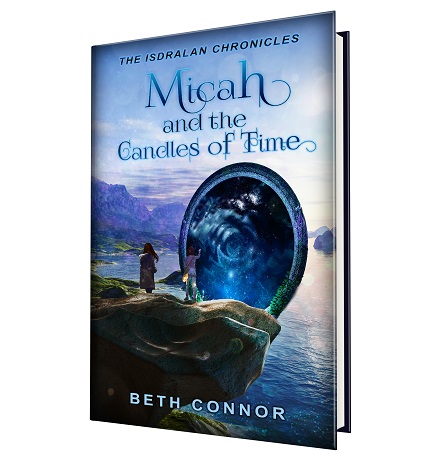
T: You work hard to make sure that creativity is fostered, both within your own literary universe, and when it comes to authors beginning to build out their own worlds. How do you think the fantasy genre benefits from authors working together?
BC: The act of writing can often feel solitary, but connecting with fellow writers opens up a universe of shared understanding. There’s a sense of comfort in knowing you’re part of a community that understands your struggles, your creative blocks, your bursts of inspiration. We learn and develop through our experiences of the world, yet for an introvert like me, collaboration requires a careful balancing act.
When we collaborate, we’re exposed to different viewpoints that can shed light on areas we might have overlooked. Questions start to emerge: why does this piece function this way? What drives your character’s actions? The process of questioning fuels curiosity, sparking growth and leading to the expansion of these incredible worlds we create. (My editor also helps with this!)
So while writing might start as a solo journey, the path becomes a shared one when we invite others to join us. It’s a delicate dance of perspectives that, when navigated right, leads to a richer narrative tapestry.
T: What would be your best recommendation for ways that storytellers can band together to benefit from collaborative spirit and cooperative marketing endeavors?
BC: Networking is key. Don’t shy away from asking for help (even if its paid help!), we all have different strengths. Delve into independently published works and engage in conversations about them. Express your thoughts and experiences in whatever way feels most natural to you—be it chatting with a friend, posting on social media, or directly reaching out to the author. Most importantly, shake off that Impostor Syndrome! It’s your journey, your process, so own it and stride confidently in your unique path.
T: You mentioned fighting past Impostor Syndrome, and even people who have been writing for decades can sometimes experience that. It might even rear its ugly head after they’ve seen all the progress they’ve made. Do you think that there’s ever a plateau that people hit? Or do they always improve their skills, even if they don’t realize it?
BC: I think that Impostor Syndrome is a deeply personal experience. For me, I doubt it will ever completely go away—I even experienced it in a field where I spent over two decades! Concerning the concept of a plateau, I believe we are in a constant state of growth, change, and adaptation in response to our environment. Even if there seems to be a plateau, stagnation itself could signify a form of change or adaptation, though it might be one we aren’t consciously aware of.
T: What kind of value do you see in tabletop roleplaying for someone who wants to start a writing journey. What lessons can they learn in building a narrative out of something like that, and what can they bring from that into writing great prose?
BC: Tabletop roleplaying serves as an extraordinary tool for character development, regardless of genre. You breathe life into a being of your own creation, bestow upon them unique quirks or obstacles to overcome, and then plunge them into an unanticipated scenario. It’s a great method for character evolution.
This process compels you to answer critical questions: How would your character respond in this given situation? What lessons would they glean from it? How would it transform them? It forces you to get outside of yourself and your own bias and see from a different perspective. It’s a practice of empathy as much as it is creativity, enriching your narrative with multi-dimensional characters that are as real as they are imagined.
Crafting compelling prose is a matter of practice. With time and effort, your words begin to flow more naturally. Immerse yourself in reading, write often, and don’t shy away from revising and refining. Reading broadens your understanding, while writing and rewriting sharpen your skills, enabling you to weave a more captivating narrative.
T: Within the realm of tabletop, there are usually some things that are out of the player’s hand. In a lot of the ways many people tell their stories, they have the ultimate say on what happens. But do you think that a story should be told that way, with guardrails up? How do you handle your own stories? Do you know definitively where things are going, or are you still prone to be surprised every now and again?
BC: I’m constantly surprised in my writing process. While I begin with a structured outline, given my nature as a planner, I always leave room for some spontaneous “pantsing”. I build the characters, their backstories, and quirks, as well as the situations they find themselves in. But inevitably, these fictional beings I’ve crafted veer off on their own paths. This unpredictable element makes writing an adventure for me!
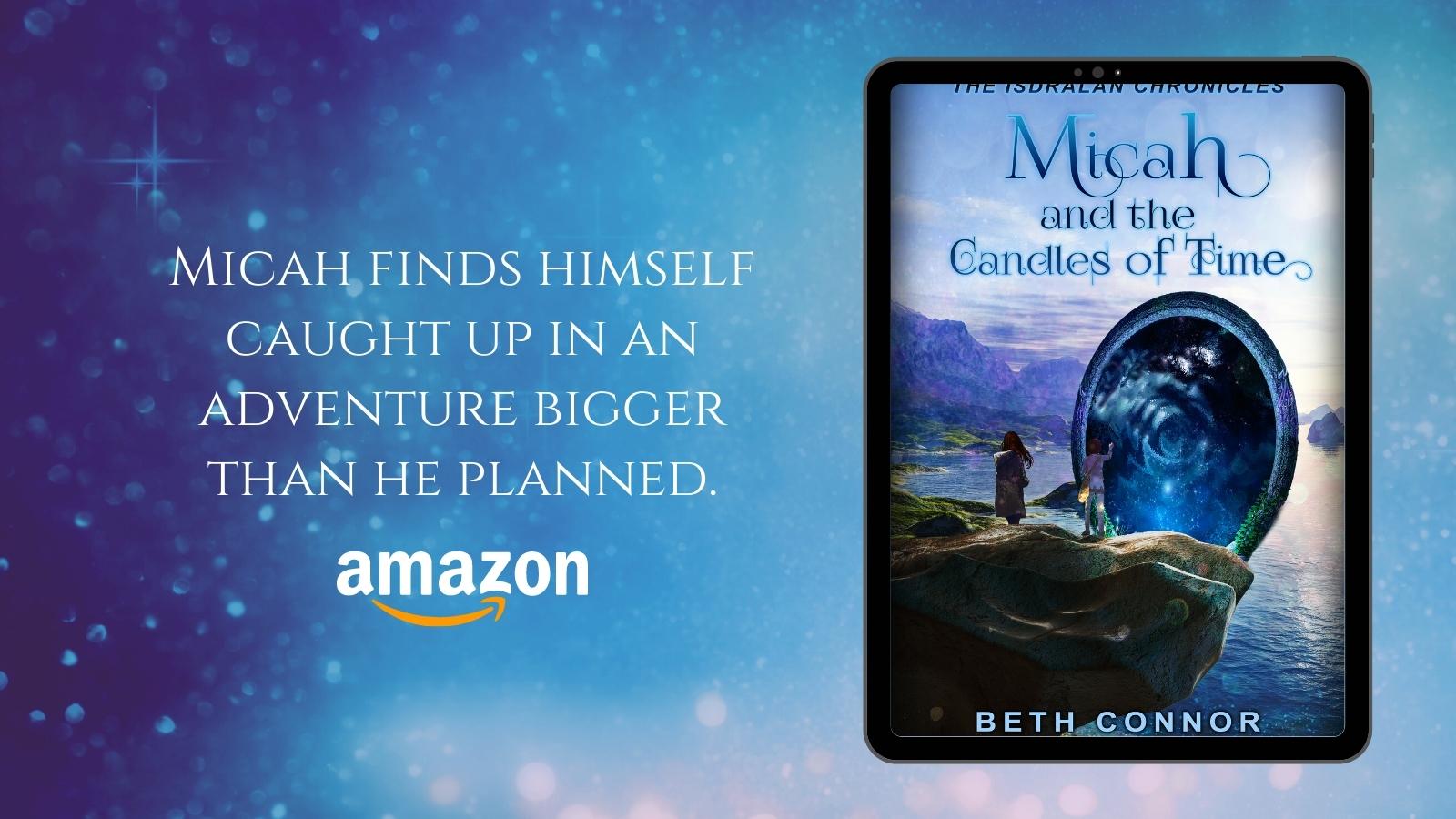
T: We talked earlier about who should hold the reins, and that you like to veer into the unpredictable areas of writing, but have you ever had a story thread that went so far off the rails that you had to pull things back on track?
BC: Definitely! I recall working on the first draft of the candle scene in ‘Micah and the Candles of Time’, during which I delved into scientific articles about the theory of special relativity, quantum physics, and beyond. As I began integrating my research into my writing, it became quite a cerebral exercise. However, a gentle reminder from my editor brought me back to reality: my protagonist was 14 years old…
T: If someone wanted to learn more about you, where would they go? Do you prefer people to go to your website, or is there another way for people to get to know you and your content?
BC: Head on over to my website if you want to dig a little deeper www.bethconnor.com . I’ll be honest, writing about myself isn’t exactly my go-to, but I do my best to keep things up-to-date there. You can also find me on Twitter, Facebook, and Instagram. Though I must warn you, I’m not the biggest social media buff, so those accounts might seem a bit on the quiet side.
Don’t let that discourage you from getting in touch! There’s a contact form on my website and I’m all ears for any questions you might have. I aim to get back as soon as I can and, honestly, I love a good chat about my stories, characters, or even snippets of my life if you’re interested!
There’s also a Discord server for Wolf Grove Media. It’s not huge, but it’s cozy and welcoming. If you fancy a chat with me or any of the other authors, just drop me a message on my website and ask for an invite. We’d be more than happy to have you onboard!
T: On the other hand, do you partake in any live events to spread the word about your projects and passions? Have you been to book launches, or convention events, or things of that nature?
BC: Reflecting on my earlier comment about Impostor Syndrome, this is one area where I truly need to heed my own advice! I’ve yet to participate as a writer in any signings or events—honestly, the prospect kind of terrifies me! But, I’ve made a pact with myself: once I’ve published five books, I’m going to muster the courage to secure a table at a convention or two. If you happen to be anywhere near Seattle, keep an eye out for me at the Emerald City Comic Con—it’s likely to be my first stop!
T: As someone fighting past my own Impostor Syndrome from time to time, I can say that hitting up your first convention as a presenter/seller/artist can be overwhelming, but if anyone can pull it off and make something of it, it’s you!
I wanted to thank you once again for spending your time with us and giving us such a robust understanding of what brought you to so many different tables. You’re creating so many worlds, and I hope that people are eager to learn more about you and your work. This certainly isn’t the last time that we’ll have chats like these, but this one felt very special, and I appreciate all of your insights!
BC: I’m absolutely thrilled to have discovered you and the world of Tellest, and I eagerly anticipate connecting with more readers and creators! Despite the Impostor Syndrome, engaging in a good conversation remains one of my favorite activities. This entire experience has been truly remarkable!
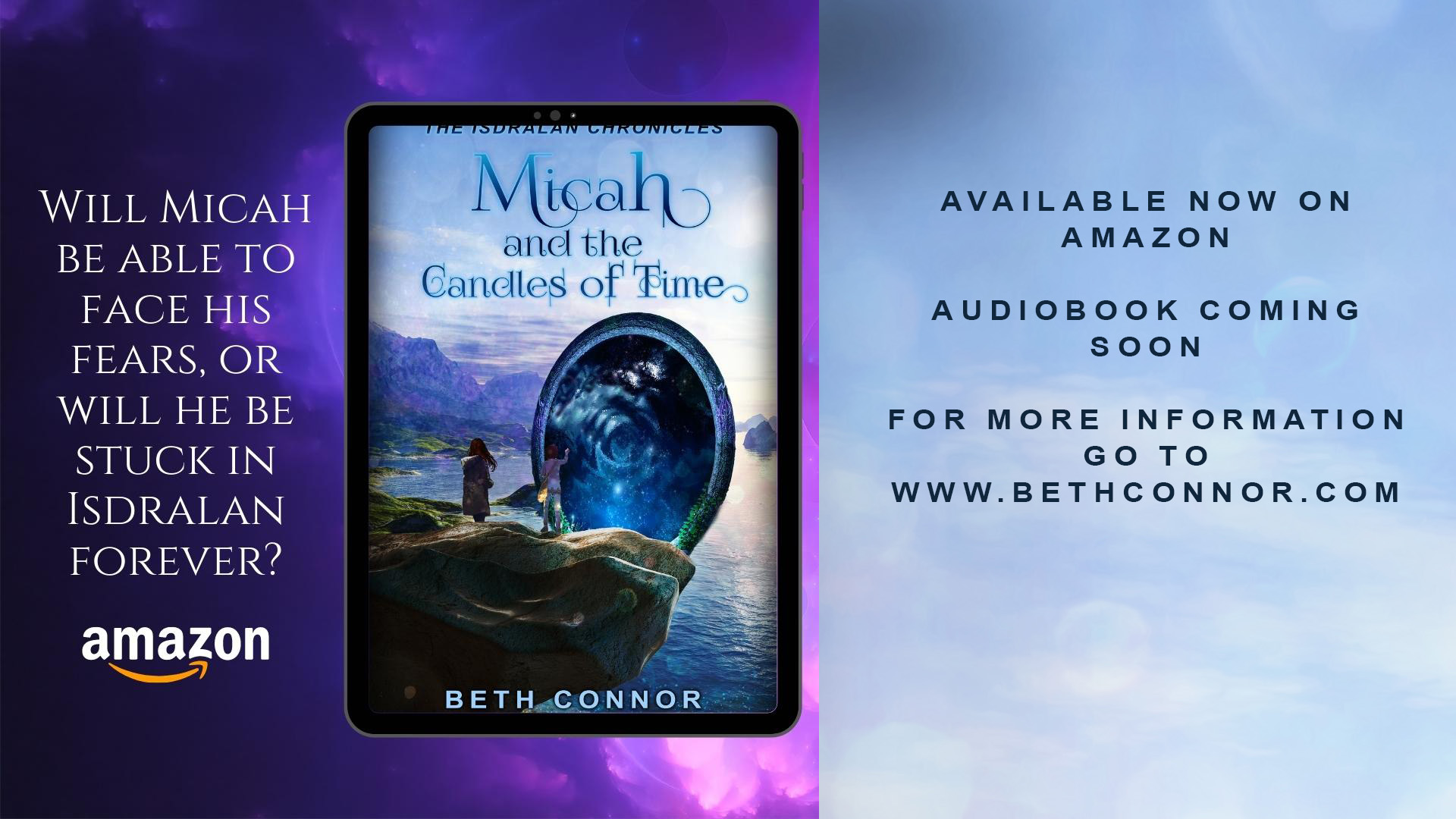
T: I want to thank Beth Connor one more time for helping to draw back the curtain into her world, and all the words she touches. She’s a tremendous force for good in the writing world, both for herself and for others, and I dearly hope that you’ll give her work a gander. You can check out her work, as she said, on her website at www.bethconnor.com. But I would also recommend checking out our promotion for Micah and the Candles of Time. Also, be sure to check out the book on Amazon today.
This won’t be the last we hear from Connor, as we’ll be working to help her bring attention and focus to her other stories as well. Keep your eyes peeled in the future as we continue to look at Isdralan and beyond!
Michael DeAngelo
Latest posts by Michael DeAngelo (see all)
- Fantasy Promo – Quinine - July 25, 2024
- Sigil Art – Grim’s Hold - July 24, 2024
- Fantasy Promo – Light the Shadows (Under Elfhame’s Stars) - July 24, 2024
